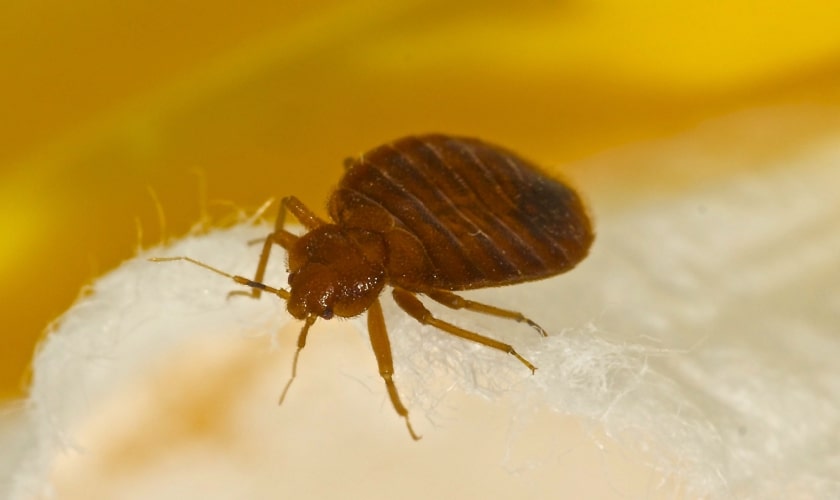A Break Down of the Numerous Sorts Of Parasite Control Solutions
In the realm of parasite control, a plethora of approaches exist to attend to and combat the presence of unwanted creatures. As we navigate with the diverse landscape of pest control solutions, understanding the intricacies of each technique ends up being critical in identifying the most effective course of activity.
Chemical Pesticides
Chemical chemicals are typically used in bug control to effectively remove a vast array of insects and various other bugs. These pesticides work by targeting the nerves of the pests, disrupting their regular functions, and inevitably causing their demise. The use of chemical pesticides has actually been a staple in the insect control industry for years because of their efficiency and fast results.

However, it is vital to utilize chemical pesticides with care as a result of their possible harmful effects on the environment and non-target species. Improper application or overuse of these pesticides can lead to pollution, harm to useful pests, and resistance development in bug populaces. It is crucial to adhere to safety and security standards and laws when using chemical pesticides for insect control.
Biological Control Methods
Thinking about the potential ecological impacts and threats related to chemical pesticides, organic control techniques offer an even more sustainable strategy to handling parasite populations. Organic control involves making use of natural adversaries, such as predators, bloodsuckers, and microorganisms, to suppress bug populations. This technique is often much more targeted, influencing just the specific insect varieties while minimizing damage to valuable insects, people, and the setting.

One benefit of organic control is its long-lasting effectiveness. Once established, natural enemies can aid regulate pest populations continuously without the demand for duplicated applications of pesticides. Additionally, organic control is commonly much more cost-effective and can help reduce chemical resistance in insect populaces gradually. Generally, biological control approaches provide a sustainable and environmentally pleasant service to pest monitoring.

Mechanical Bug Control
Mechanical pest control involves the physical control or elimination of parasites to manage their populaces efficiently. This technique is commonly used in conjunction with other insect control techniques for detailed bug monitoring. One usual instance of mechanical bug control is utilizing catches to record insects or rodents. These catches can be set up in critical places where flying ant control insects are understood to dwell, aiding to decrease their numbers.
Another mechanical strategy is making use of obstacles such as fencings, screens, or nets to block parasites from getting in details locations. By literally avoiding parasites from accessing an area, the chance of problems or damage can be considerably decreased. Additionally, manual approaches like handpicking insects off plants or structures can be efficient for smaller-scale invasions.
While mechanical bug control methods can be labor-intensive, they offer a non-chemical choice that can be sustainable and eco friendly. By targeting pests straight, mechanical control techniques can help keep pest populaces in check without counting on chemicals.
Natural Solutions
Using all-natural treatments for parasite control uses a sustainable and eco-friendly technique to managing bug populaces without turning to chemical treatments. Natural treatments entail making use of compounds acquired from plants, minerals, or other naturally taking place sources to prevent or remove insects. Planting particular natural herbs like basil, mint, or lavender around your residential or commercial property can push back insects due to their strong fragrances. Diatomaceous planet, a powder made from fossilized algae, can be made use navigate to this website of to deal with parasites like ants, cockroaches, and bed bugs by dehydrating their exoskeletons.
In addition, essential oils such as tea tree oil or neem oil have insecticidal homes that can successfully manage insects while being risk-free for the atmosphere. Another natural remedy is presenting beneficial pests like ladybugs or hoping mantises to your yard to victimize More hints harmful parasites. By including these natural remedies right into bug administration methods, individuals can reduce their dependence on artificial chemicals and promote a healthier, more well balanced environment.
Integrated Insect Management
Integrated Parasite Monitoring (IPM) is a detailed method that combines numerous techniques to efficiently control pest populaces while lessening risks to human wellness and the atmosphere. IPM involves the assimilation of several parasite control techniques such as biological control, environment manipulation, alteration of cultural methods, and the use of immune crop selections. By using a mix of these methods, IPM intends to minimize dependence on chemical pesticides, which can have unfavorable impacts on environments and human health.
One trick facet of IPM is the emphasis on prevention. By implementing procedures to stop parasite infestations prior to they occur, such as preserving correct sanitation and sealing access factors, the need for responsive parasite control steps is decreased. Monitoring and routine examinations play an important duty in IPM, allowing for early discovery of pest problems and prompt treatment.
Verdict
To conclude, the different sorts of pest control services use an array of options for efficiently handling parasite infestations. Chemical pesticides supply fast obliteration but may have environmental dangers. Organic control approaches make use of all-natural killers to control pests. Mechanical insect control includes physical barriers or traps. Natural treatments use safe choices. Integrated Parasite Monitoring incorporates numerous strategies for a holistic approach to pest control. Each method has its own advantages and drawbacks, and choosing one of the most appropriate solution depends on the specific parasite trouble handy.
Chemical chemicals are frequently used in pest control to efficiently get rid of a broad array of pests and other insects.Mechanical insect control involves the physical adjustment or elimination of parasites to manage their populations properly (Kings pest control cincinnati oh).Using all-natural treatments for pest control uses a environmentally friendly and lasting technique to managing bug populations without resorting to chemical treatments.Integrated Insect Monitoring (IPM) is an extensive strategy that integrates numerous techniques to properly control pest populaces while decreasing risks to human health and wellness and the environment.In final thought, the numerous types of parasite control solutions use an array of options for successfully taking care of pest invasions